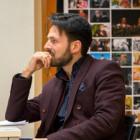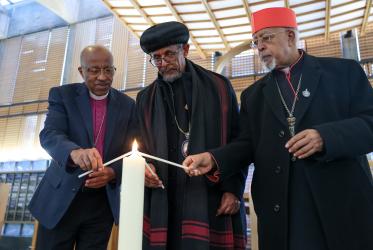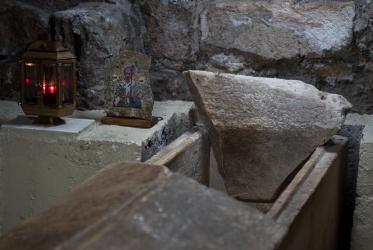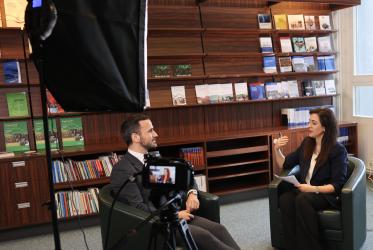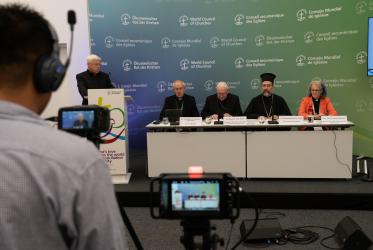It has often been questioned whether it is possible for Christians of different traditions to jointly commemorate historical events that have marked and traumatized the collective memory of Christianity over the centuries. The Reformation is certainly one of those events that not only changed the course of world Christianity in a dramatic way but that also ceaselessly redefines the basic concepts of Christian theology and life in ways that affect even those who do not embrace its positions.
Last week the Department of Pastoral and Social Theology of Aristotle University of Thessaloniki, Greece, hosted under the auspices of the Ecumenical Patriarchate of Constantinople an international conference on the occasion of the 500th anniversary of the publication of Martin Luther's 95 theses in 1517. The conference was co-organized together with the Protestant and Roman Catholic Faculties of Strasbourg University, and the Theological Faculty of Kiel, with the support of the German Consulate of Thessaloniki.
From 28-30 March more than 40 Lutheran, Reformed, Roman Catholic and Orthodox speakers, scholars and clergy from different European countries, including many Greek post-graduate and doctoral students, shared their thoughts about the theological, spiritual, cultural and socio-political aspects of the Protestant Reformation.
Particular attention was paid to the present status of the official bilateral dialogues of the Roman Catholic Church and the Orthodox Church with the Lutheran World Federation. The participants examined the ecumenical significance and reception of important documents like the Lutheran-Catholic “Joint Declaration on the Doctrine of Justification” and the report “From Conflict to Communion.”
The conference's holistic approach highlighted the importance of the Reformation as an event that contributed and even played a leading role in the development of modernity. As it became apparent, it is not possible to understand fully and properly concepts like individualism, liberalism, rationalism or the reality of free market and capitalism without explicit reference to the fathers of the Reformation. In other words, if Saint Augustine’s theological and philosophical work is to be considered the ideological cornerstone for the rise of Western Christendom, similarly the work of the leading Reformers must be acknowledged as crucial for the formation of today’s western civilization which affects us all.
Still, for many Orthodox believers, the Reformation is simply an internal Western problem; an offspring of Roman Catholicism and a further step away from the common faith and tradition of the church of the first millennium. Most of them are not familiar with the early contacts between Protestant theologians and Orthodox clerics, and the modern ecumenical dialogue remains the great unknown. Moreover, those who know more about church history recall the cessation of the correspondence between the Lutheran theologians of Tubingen, Germany, and the Ecumenical Patriarch, Jeremiah II, as an argument against the continuation of present day’s theological dialogues.
Are we dealing with an a priori negative view of the multi-level phenomenon of Reformation? This is not an easy question to be answered and certainly not a pleasant one. Still, the conference made it clear that we have to examine the facts about it without our ideological preconceptions and only in the light of the historical context.
Through this process, we will be able to develop a more objective view of things and to identify not only negative but also the positive dimensions of Reformation. For example, few Orthodox would openly acknowledge its key role in the struggle for national emancipation and liberation and the configuration of national identity in modern European history; an important chapter in the life of many local Orthodox churches of southeastern Europe until today.
During this anniversary year, for the first time, Protestants and Roman Catholics, together with Orthodox, are jointly searching the way to co-understand the commemoration of Reformation. Not only as a moment of ongoing division, pain, and estrangement, but also as an opportunity to experience it as a pilgrimage of healing and peace.
We are called to understand the 500th anniversary of the beginning of the Reformation as a time of deeper self and mutual awareness, a step towards trust and away from misunderstandings, as well as an ongoing invitation for appreciation of our common European heritage, especially in this time of multiple crises. In this process, it is crucial to provide space for open discussion about who we are, where we come from and where we want to go as churches, Christians and historical beings. The conference successfully provided the space for this reflection.

